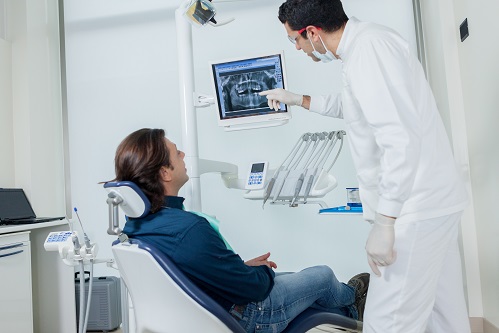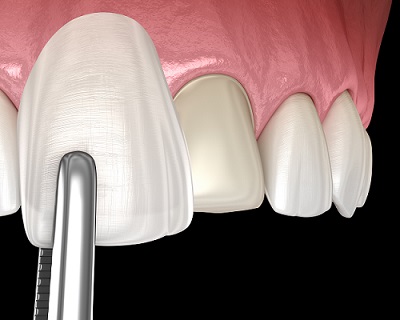Everyday activities like eating, talking, and even smiling are such an important part of our lives, so it can be especially uncomfortable to have pain or restrictions when performing them. Often, difficulty and discomfort with these activities can be associated with temporomandibular joint (TMJ) issues and disorders. Issues with the TMJ can also cause other issues like jaw pain and headaches. Fortunately, you can manage and even prevent TMJ symptoms entirely when you understand the root causes of TMJ. This article will cover several of the most common causes of TMJ problems, as well as provide tips for reducing pain.
Understanding TMJ and TMD
The temporomandibular joints (TMJs) are on either side of your jaw, and they connect the lower jaw (mandible) to the temporal bone of the skull. They’re pretty complex joints that move in certain ways that let us chew, speak, and perform other jaw functions. When they’re not aligned or functioning properly, they lead to a range of disorders known collectively as temporomandibular disorders (TMD). Some of the most common TMD disorders involve jaw pain, clicking or popping sensations/sounds, headaches, and restricted mouth movement.
Common Causes of TMJ Disorders
Bruxism (Teeth Grinding and Clenching)
One incredibly common cause of TMJ disorders is bruxism, or the habitual clenching/grinding of the teeth. Most people do this subconsciously, especially when they’re asleep, and it puts a serious stain on the muscles and joints in your jaw. The strain bruxism puts on your jaw tends to lead to muscle inflammation, jaw pain, and damage to the TMJ cartilage over time.
Mitigation Tips:
- Relaxation Techniques: Practices like yoga, meditation, and deep breathing exercises can help reduce stress, which is often a trigger for bruxism.
- Mouthguards: Custom-fitted mouthguards worn at night can help prevent teeth grinding and reduce the strain it puts on the TMJ.
Jaw Injury or Trauma
Direct trauma to the jaw, neck, or head can dislocate or damage the temporomandibular joint, leading to TMJ disorders. Any kind of impact to the jaw or neck can lead to TMJ issues, like form a fall, car accident, or sports injury, for example.
Prevention Tips:
- Protective Gear: Protective gear like mouthguards during sports and seat belts while driving can help prevent injuries that would cause TMJ disorders.
- Prompt Treatment: If you do sustain a jaw injury, getting treatment for it ASAP can help prevent long-term damage to the TMJ.
Arthritis
Osteoarthritis and rheumatoid arthritis can cause TMJ issues because they wear down the cartilage and causing inflammation within the joint. When the joint degenerates like this, it can restrict movement and cause a lot of pain.
Mitigation Tips:
- Medication: Anti-inflammatory medications can help reduce pain and inflammation in the joints.
- Physical Therapy: Exercises designed to strengthen the jaw muscles and improve joint mobility can be a big help in managing arthritis-related TMJ disorders.
Stress and Psychological Factors
Stress and anxiety have been proven to cause numerous issues, including muscle tension and bruxism, both of which can cause TMJ issues. Some people clench their jaw or grind their teeth when they’re stressed, which places a lot of strain on the TMJ.
Prevention Tips:
- Behavioral Therapy: Cognitive-behavioral therapy can help patients recognize and change their behaviors that contribute to TMJ disorders.
- Relaxation Exercises: Practicing relaxation techniques regularly can help reduce overall muscle tension.
Malocclusion (Misalignment of Teeth)
When your teeth aren’t aligned properly, the jaw goes into unnatural positions, which puts a lot of stress on the TMJ. This misalignment, also known as malocclusion, can cause uneven pressure and cause issues with the TMJ.
Mitigation Tips:
- Orthodontic Treatment: Dental corrections like braces and aligners can realign the teeth, reducing the amount of stress on the TMJ.
- Bite Adjustments: Sometimes, changes to the bite surface of the teeth can help alleviate TMJ symptoms.
How to Treat TMJ at Home
Daily Habits: You can manage and sometimes prevent TMJ disorders entirely with some simple changes to your lifestyle. Avoiding hard or chewy foods, maintaining good posture, and performing jaw exercises will all reduce strain on the TMJ. Gentle exercises and massages to your jaw muscles and mouth can also relax the TMJ and improve how it functions.
Professional Treatments: If your TMJ disorders are really severe, you might need some professional TMJ treatment. Some of these treatments include physical therapy, orthodontics, and in extremely severe cases, surgery. Contacting a specialist in TMJ treatment in Livingston can be a huge help, since they’ll give you personalized recommendations based on your unique case and dental needs.
Preventing TMJ Disorders
TMJ disorders can be painful and disruptive, but you can improve your quality of life when you understand the common causes and how you can mitigate them. By addressing factors like bruxism, jaw injury, arthritis, stress, and dental misalignment, patients can find relief and prevent further complications. If you or a loved one is experiencing TMJ symptoms, find some professional TMJ treatment in Livingston that will take the unique case into account.
If you live in Livingston and need help with TMJ, keep in mind that early intervention makes a huge difference. Don’t hesitate to reach out to a Livingston TMJ specialist for guidance on the best course of action for your specific needs.




